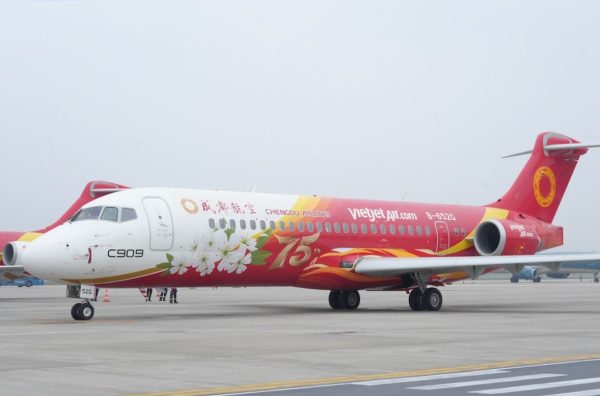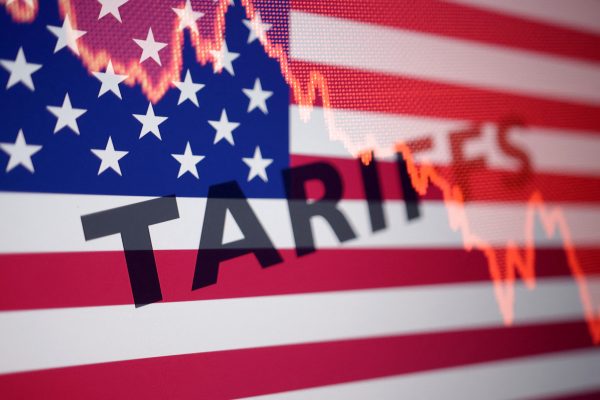
Turkey is seeking a role as a major power in the international diplomatic arena, once again in the shadow of the Russian invasion of Ukraine, recognizing the tectonic geopolitical changes that are taking place. And seeking to take advantage of the momentum and advantages it offers, having already created the opportunity to break out of the introversion that Recep Tayyip Erdogan had chosen in previous years, as a reliable ally in the arms of the West.
Given that Turkey provided Ukraine with unmanned aircraft before the outbreak of war, it met the requirements of the treaties and closed the Straits, implementing the Montreux Treaty, acting as a mediator and putting itself at the forefront of the diplomatic game, gaining the upper hand, so as to be “forgiven” for any balancing acts it attempts vis-à-vis Moscow, even its refusal to adopt the sanctions imposed by the West. Something that seems to be accepted by Kyiv as well. This leaves Athens needing a new narrative that will shield its interests.
In this context and with what has come to light, diplomatic sources estimate that the improvement in Turkey-US relations achieved through the war in Ukraine will develop, paving the way – at least – for upgrading its F-16 fleet.
Circles in Athens note the process of normalization of Turkey-Israel relations, under the watchful eye of Washington, which is paving the way for Ankara’s inclusion in the energy plans imposed by an energy independence from Russia. These new data brings Cyprus in front of hard dilemmas but also in the danger of being demoted from a state to an “island”. Ankara is forging new economic ties with the United Arab Emirates, and in the same vein is trying to re-establish relations with all of its neighbors. Even France’s attitude seems to be changing, as Paris does not underestimate Ankara’s role.
Macron has already announced joint operations of France, Greece and Turkey for the evacuation of civilians in Mariupol, while at the same time seems to be reheating the defense agreement France – Turkey – Italy, for the production of air-to-air missile systems that was interrupted after the invasion of Syria in 2019.
According to Erdogan, the issue was discussed with both Draghi and Macron, a fact that was confirmed by the Italian Prime Minister. In all this, it should be noted that Turkey also maintains excellent relations with Moscow.
Diplomatic sources – Greek and non-Greek – stress that in addition to Ankara’s role, the demand for homogeneity in NATO has been strengthened, which forces Turkey to refrain from expressing its revisionism. Currently. Some, however, note that Greek diplomacy should not miss the opportunity to try to impose its own conditions on the “reconnection” of Ankara-West, asking for guarantees that will not allow a return to tensions after another moratorium of a few months. Redeeming the clear – at cost – position of Athens within the requirements of NATO and the EU.
Enlargement of alliances
The Foreign Ministry is monitoring the developments and andd is trying for Athens not to be left out of the developments. They consider it necessary to constantly clarify Greece’s orientation to the West, the adoption of EU and NATO decisions without asterisks, as well as the reminder that for Greek foreign policy territorial integrity and the defense of the sovereignty and sovereign rights of each country is a fundamental keystone, rejecting any expression of revisionism.
In the same context, efforts are being made to expand the country’s alliances and cooperation, with the aim of strengthening its role on the geopolitical map, with Foreign Ministry spokesman Alexandros Papaioannou stressing that all countries, especially candidate countries, must harmonize with EU decisions regarding concerns on the imposition of sanctions.
And all this at a time when the Turkish side chooses to maintain – on a painless level – its rhetoric that purports to show Greece as a “violator” of international law, with Mevlüt Tsavousoglou claiming yesterday that the Lausanne Treaty “requires the election of muftis” in Thrace. The Foreign Minister responded in an ironic tone, noting that “there is no relevant provision in the Lausanne Treaty.”
Latest News

New Exposé by Domumento Reveals Nefarious Triangular Link of ‘Black Money’ with New Democracy, Blue Skies, & Truth Team
The latest exposé by the Documentonews.gr news site lays bare what appears to be a surreptitious path of indirect financing of ND through the business sector—transactions that, as widely understood, rarely occur without expectations of reciprocal benefit

PM Meloni Meets Vice President Vance in Rome Signalling Optimism on Ukraine Talks
Meloni emphasized the strength and strategic value of the Italy-U.S. partnership.

Airbnb: Greece’s Short-Term Rentals Dip in March Amid Easter Shift
Data from analytics firm AirDNA shows that average occupancy for short-term rentals dropped to 45% in March, down from 49% the same month last year.

Easter Week in Greece: Holy Friday in Orthodoxy Today
At the Vespers service on Friday evening the image of Christ is removed from the Cross and wrapped in a white cloth

Meloni and Trump Meet in Washington, Vow to Strengthen Western Ties
“I am 100% sure there will be no problems reaching a deal on tariffs with the EU—none whatsoever,” Trump stressed.

ECB Cuts Interest Rates by 25 Basis Points in Expected Move
The ECB’s Governing Council opted to lower the deposit facility rate—the benchmark for signaling monetary policy direction—citing an updated assessment of inflation prospects, the dynamics of underlying inflation, and the strength of monetary policy transmission.

Current Account Deficit Fell by €573.2ml Feb. 2025: BoG
The improvement of Greece’s current account was mainly attributed to a more robust balance of goods and, to a lesser extent, an improved primary income account

Hellenic Food Authority Issues Food Safety Tips for Easter
Food safety tips on how to make sure your lamb has been properly inspected and your eggs stay fresh.

Greek Kiwifruit Exports Smash 200,000-Ton Mark, Setting New Record
According to data by the Association of Greek Fruit, Vegetable and Juice Exporters, Incofruit Hellas, between September 1, 2024, and April 17, 2025, kiwifruit exports increased by 14.2%.

Easter Tourism Boom: Greece Sees 18.3% Surge in Hotel Bookings
Among foreign markets, Israel has emerged as the biggest growth driver, with hotel bookings more than doubling—up 178.5% year-on-year.







![Πλημμύρες: Σημειώθηκαν σε επίπεδα ρεκόρ στην Ευρώπη το 2024 [γράφημα]](https://www.ot.gr/wp-content/uploads/2025/04/FLOOD_HUNGRY-90x90.jpg)





![Airbnb: Πτωτικά κινήθηκε η ζήτηση τον Μάρτιο – Τι δείχνουν τα στοιχεία [γράφημα]](https://www.ot.gr/wp-content/uploads/2024/07/airbnb-gba8e58468_1280-1-90x90.jpg)











![Επιχειρήσεις: Με τι επιτόκιο δανείζονται – Πώς θα ξεκλειδώσει περισσότερη ρευστότητα [γράφημα]](https://www.ot.gr/wp-content/uploads/2025/04/daneia-trapezes-768x432-1-600x338.jpg)














 Αριθμός Πιστοποίησης
Αριθμός Πιστοποίησης